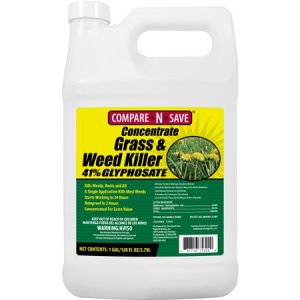
The world’s most widely produced herbicide
Glyphosate is the world’s most widely produced herbicide.
It is a broad-spectrum herbicide that is used in more than 700 different products for agriculture and forestry to home use.
Glyphosate was introduced in the 1970s to kill weeds by targeting the enzymes that produce the amino acids tyrosine, tryptophan, and phenylalanine. Usage of glyphosate has since amplified, after the introduction of genetically modified (GMO) glyphosate- resistant crops.
What conditions are linked to Glyphosate?
Glyphosate can enter the body by direct absorption through the skin, by eating foods treated with glyphosate, or by drinking water contaminated with glyphosate.
Recent studies have discovered glyphosate exposure to be a cause of many chronic health problems. The World Health Organization International Agency for Research on Cancer published a summary in March 2015 that classified glyphosate as a probable carcinogen in humans.
Possible cancers linked to glyphosate exposure include non-Hodgkin lymphoma, renal tubule carcinoma, pancreatic islet-cell adenoma, and skin tumors.
Studies have also indicated that glyphosate disrupts the microbiome in the intestine, causing a decrease in the ratio of beneficial to harmful bacteria.
Current research indicates that disruption of the microbiome could cause diseases such as autism, metabolic disorder, diabetes, depression cardiovascular disease, and autoimmune disease.
What are the treatment options?
The Treatment of glyphosate toxicity is centered on determining the route of introduction (and preventing/avoiding future exposure).
The office of Dr. West provides testing for Glyphosate levels in the blood.
There are several way to reduce glyphosate exposure and counter-act its toxic effects:
– Avoid eating GMO foods
– Jacuzzi – Detoxing baths and teas – Sauna – IR Sauna
– Glutathione (in IV form)
– Charcoal
